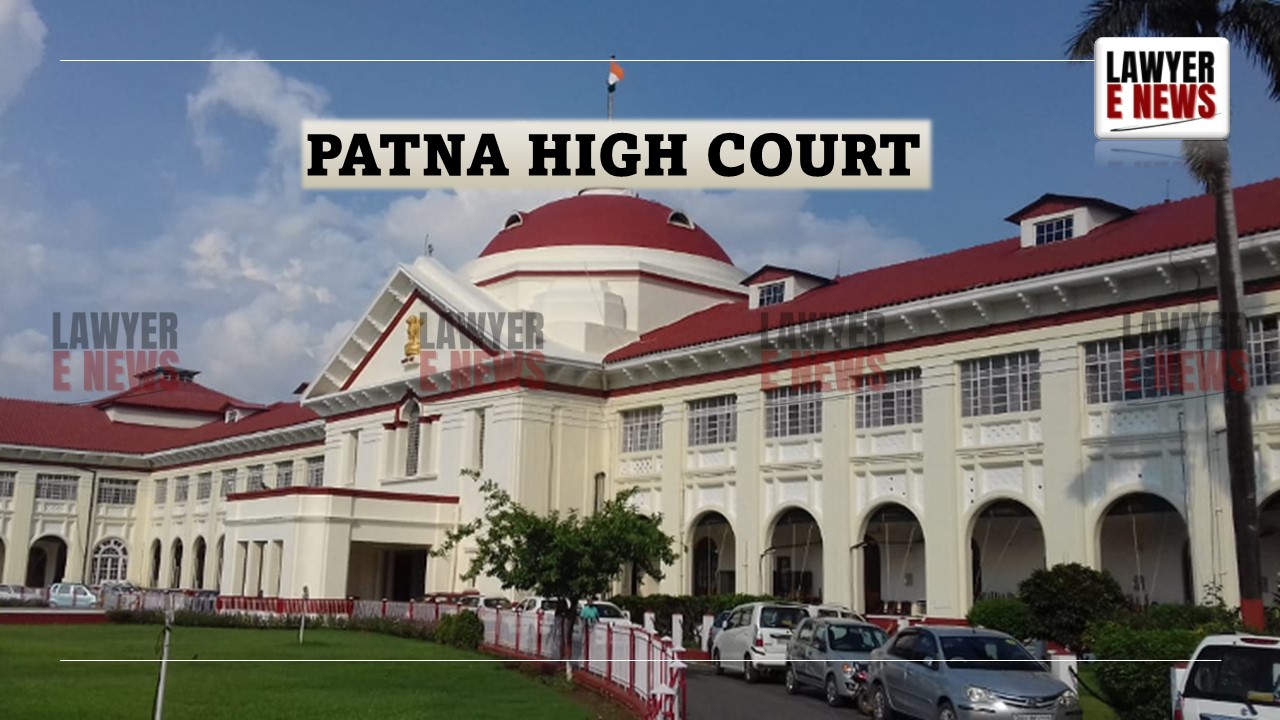-
by Admin
15 February 2026 5:35 AM



Supervisory Jurisdiction Under Article 227 Is Distinct and Constitutional - Patna High Court, presided over by Justice Mohit Kumar Shah, ruled that judicial orders of civil courts cannot be challenged under writ jurisdiction via Article 226 of the Constitution. Instead, such challenges must be filed under the supervisory jurisdiction of the High Court as prescribed in Article 227. The court granted the petitioners four weeks to convert their writ petition into a Civil Miscellaneous Petition and directed the court registry to expedite the matter.
This judgment upholds the principles laid down by the Supreme Court in Radhey Shyam and Another v. Chhabi Nath [2015 (5) SCC 423], reinforcing the clear demarcation between the two constitutional provisions.
The petitioners had invoked the writ jurisdiction of the High Court under Article 226, seeking to quash an interlocutory order passed by the Sub-Judge-I, Danapur, in an execution case concerning land possession. The impugned order, dated February 24, 2014, had reversed an earlier decision of the same court issued on July 3, 2012. The petitioners sought to enforce possession of land as per the earlier order.
A critical issue arose regarding the maintainability of the writ petition under Article 226 to challenge the judicial order of a civil court. Counsel for the petitioners sought relief to convert the writ into a Civil Miscellaneous Petition under Article 227, in compliance with the amended Patna High Court Rules and recent Supreme Court rulings.
Judicial Orders of Civil Courts Not Amenable to Writ Jurisdiction (Article 226)
The High Court categorically ruled that judicial orders of civil courts are outside the purview of writ jurisdiction under Article 226. Justice Mohit Kumar Shah cited the Supreme Court’s authoritative ruling in Radhey Shyam v. Chhabi Nath (2015), which clarified:
“Judicial orders of civil courts are not amenable to a writ of certiorari under Article 226 of the Constitution. Such orders can only be challenged through appellate or revisional mechanisms provided by law or under Article 227.”
The High Court emphasized that the distinction between Articles 226 and 227, as laid down in Radhey Shyam, must be upheld. It reiterated that appellate and revisional jurisdictions are governed by statutory provisions, while supervisory jurisdiction under Article 227 is constitutional in nature.
In furtherance of its reasoning, the court pointed to the supervisory nature of Article 227, which allows High Courts to oversee and correct errors in the functioning of lower courts. This jurisdiction is distinct from the writ jurisdiction under Article 226, which is designed to address violations of fundamental rights or errors by statutory authorities, not civil courts.
High Court noted: “Control of working of the subordinate courts in dealing with their judicial orders is exercised by way of appellate or revisional powers or power of superintendence under Article 227. Orders of the civil court stand on a different footing from the orders of authorities or tribunals.”
The court further highlighted Rule 6 of Chapter IIIA of the Patna High Court Rules, which mandates that petitions under Article 227 challenging orders of civil courts must be filed as Civil Miscellaneous Petitions. This procedural framework aligns with the Supreme Court’s directives in Radhey Shyam and Surya Dev Rai v. Ram Chander Rai (2003).
Conversion of Petition: The High Court granted the petitioners four weeks to convert the present writ petition into a Civil Miscellaneous Petition under Article 227.
Registry Cooperation: The court directed the registry to provide full cooperation in facilitating the conversion and prioritizing the matter for listing.
Expedited Proceedings: Given that the case has been pending for over a decade, the court directed the concerned bench to expedite the proceedings post-conversion.
Conclusion
The judgment reinforces the constitutional distinction between Articles 226 and 227, particularly in the context of challenging judicial orders of civil courts. By adhering to the principles laid down by the Supreme Court and the procedural framework of the Patna High Court Rules, the ruling ensures procedural clarity and judicial discipline.
The case is expected to proceed under the Civil Miscellaneous Jurisdiction following the petitioners’ compliance with the directions of the court.
Date of Decision: December 9, 2024
